This post may contain affiliate links. If you make a purchase through a link, I may receive a small commission, at no cost to you. These commissions help keep this website up and running, and I thank you for your support. Read my full disclosure here.
We spent a wonderful two weeks in Latvia driving around and exploring the sights in a hired car. It completely surpassed my expectations. Latvia has a small population of under 2 million people and has a laid back and peaceful vibe with miles of open space that include lush green fields, forests, stunning coastline, and loads of rivers – over 12,500! It has interesting castles to explore and we also discovered lots of castle ruins scattered across the country that don’t appear on the main list of tourist attractions, so keep your eye out as you drive. Latvia is rich in history and has beautiful historic towns with boutique shops and cafes – Latvian’s love their cake. I think it has a bit of a Scandi vibe to it, but much more affordable. Latvia also does not experience the hordes of tourists that other European countries do which was a definite bonus for us as we were looking to travel somewhere off the beaten track.
Days 1 – 3: Sigulda
- Staying in: Sigulda
- Read my full posts: This is just an overview. Read my full posts on visiting Sigulda and also my post on visiting the nearby historic town of Cēsis.
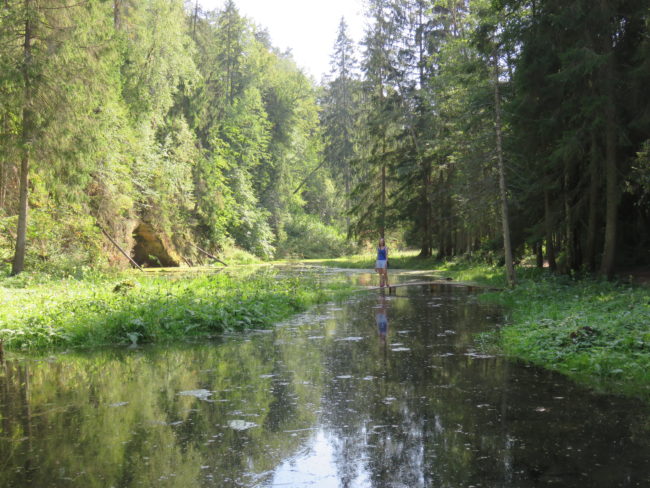
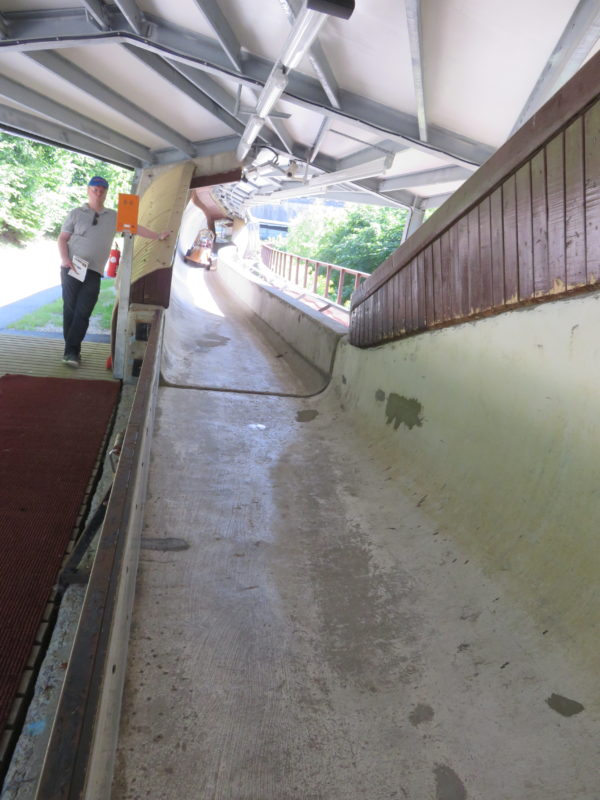
We landed in Rīga airport in the early hours of the morning. We slept at an airport hotel and then collected our hire car in the morning and headed out to Sigulda. It’s only a one hour drive from Riga and is set in a beautiful forest valley with a river running through it. It is considered Latvia’s outdoor adventure capital and there are lots of fun activities to enjoy, including hiking, bobsledding, bungee jumping, zip lining, and so much more. Here are the activities we got up to that I recommend:
- Enjoy an exhilarating bobsledding experience
- Explore Sigulda town centre
- Have fun at Sigulda Adventure Park
- Swim in the Gauja River
- Visit Sigulda Castle
- Ride the Sigulda Cable Car
- Visit Krimulda Manor
- Hike in the Gauja National Park and visit Gutman’s and Devil’s Caves
- Enjoy Turaida Museum Reserve
- Experience the exhilarating Sigulda Zipline
- Take a day trip to nearby Cēsis and visit the Castle, historic village and Cirulisi Nature Trails
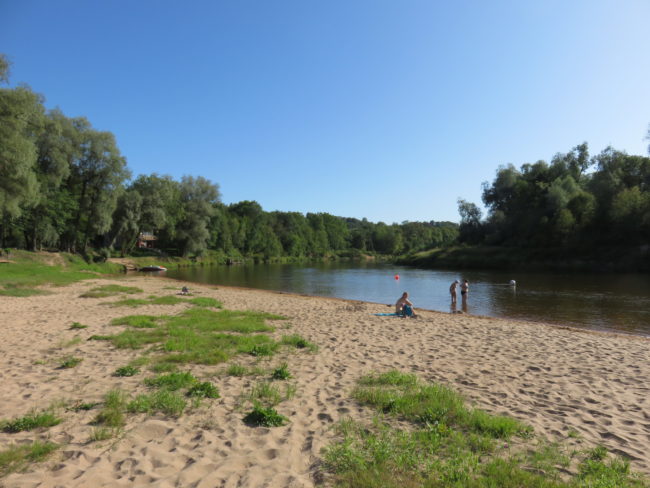
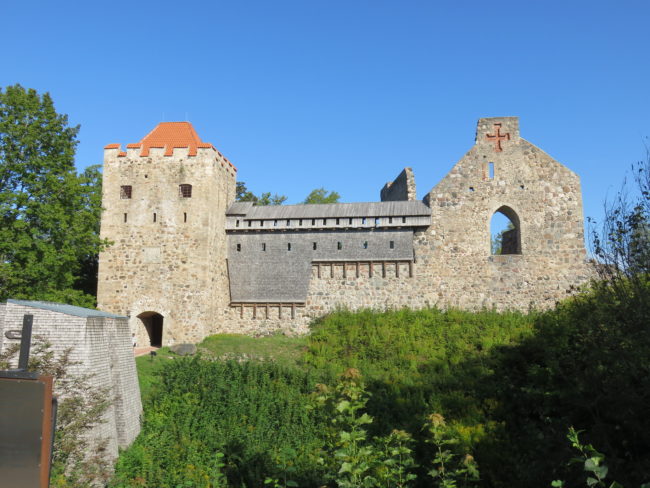
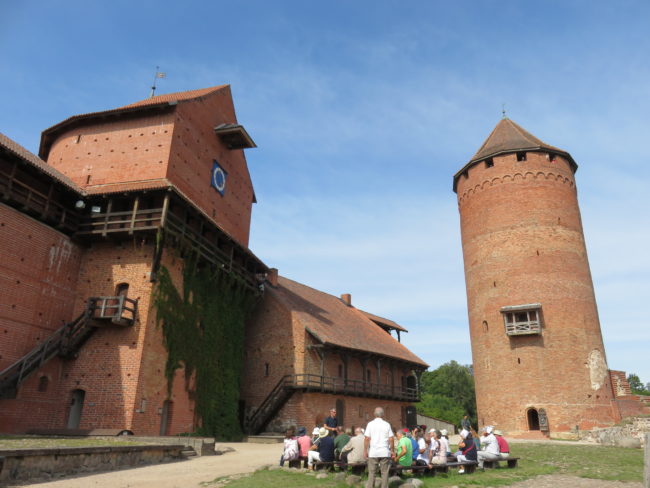
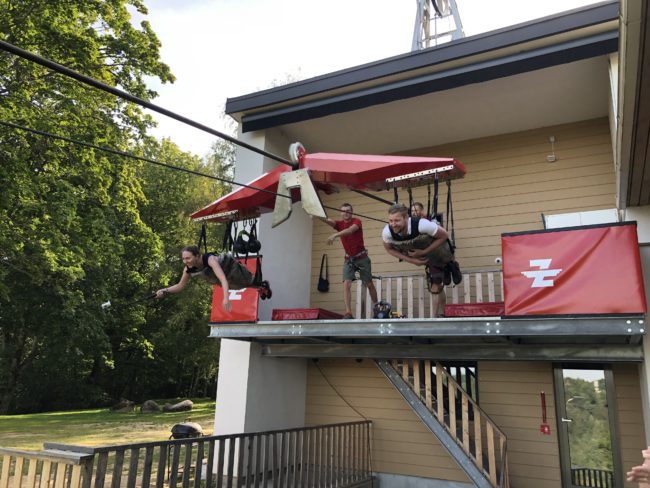
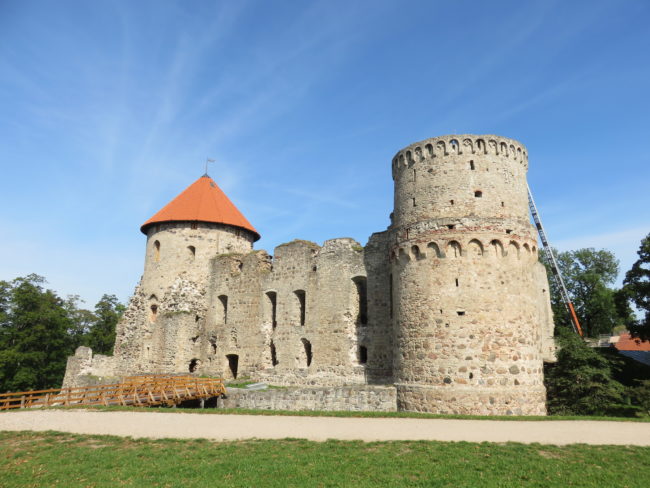
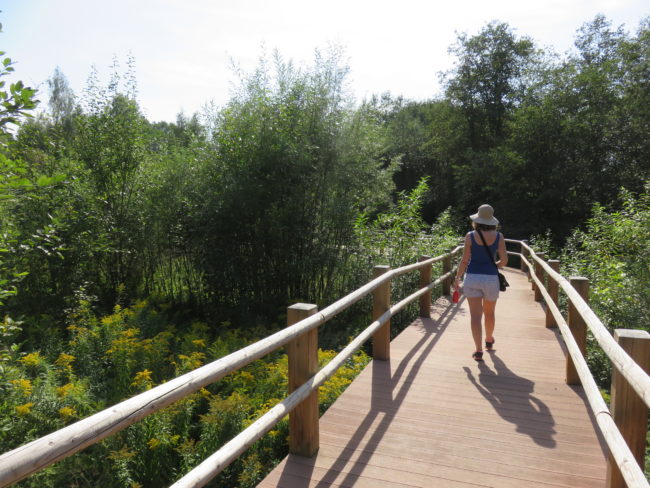
Day 4: Rundale and Bauska area
- Staying in: Rundale or Bauska area
- Read my full posts: This is just an overview. Read my full posts on visiting the Rundale and Bauska area.
Latvia has lots of wonderful castles to explore, and Bauska Castle and Rundale Palace did not disappoint. Drive from Sigulda to Bauska in the morning which takes just under 2 hours. Bauska Castle consists of two parts – the original 15th century ruins and the newer part that was built at the end of the 16th century.
Next up, visit the beautiful Rundale Palace, only a 10 minute drive from Bauska Castle in the neighbouring municipality of Rundale. This palace was used in the filming of the short BBC TV series adaptation of War & Peace. Rundale Palace was built by the Duke of Courland Ernst Johann von Biron and was finished in 1768.
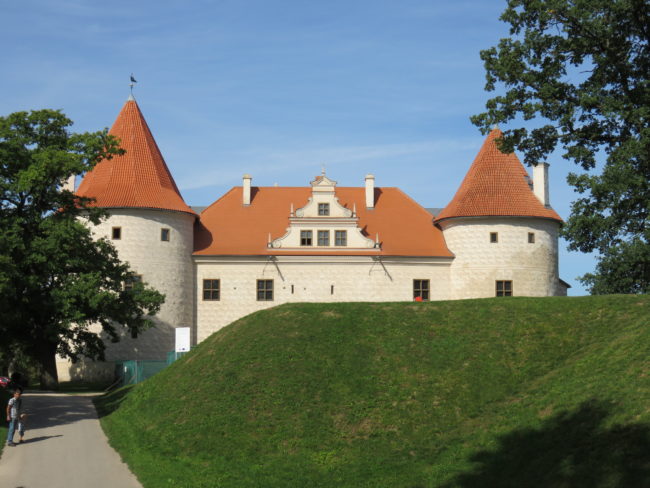
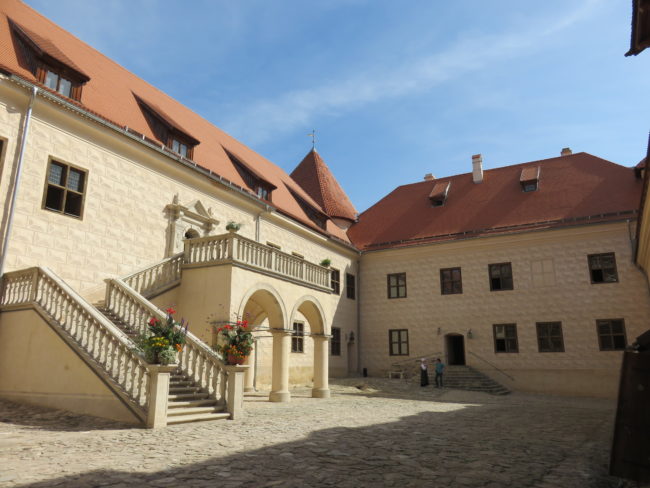
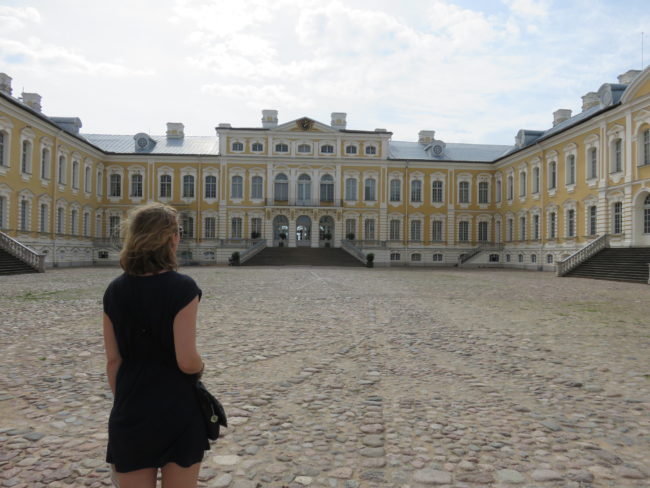
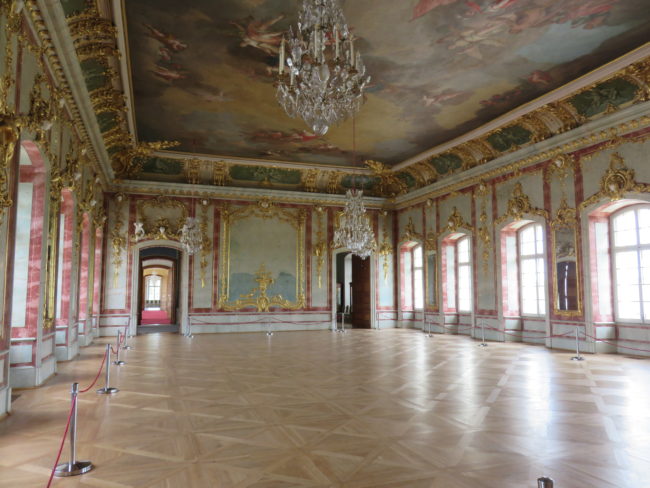
Day 5 – 6: Pape
- Staying in: Pape
- Read my full posts: This is just an overview. Read my full posts on visiting Pape.
Drive to Pape, located on the shores of the Baltic Sea. Pape boasts a beautiful and peaceful sandy coastline, a historic fishing village, lots of hiking paths, and a lagoon lake reserve with wild auroxen and horses. Pape is very close to the border of Lithuania. If you are in a rental car in which you only have permission to drive within Latvia, be careful not to pass through it. There are several roads across to Pape, two of which pass through Lithuania. However, there is a third one that stays on the Latvian side of the border and only takes a few minutes longer – head across the A9 towards Liepāja and then down to Pape on the A11.
Along the way, there are plenty of interesting sites to stop and explore and stretch your legs. For example, visit the ancient Tērvete Hillfort (Tērvete parish, LV-3730, Latvia). Walk a little further than the fort, and you will also discover the castle remains. This drive will also take you through the town of Dobele, which has the large Zemgale castle mound and Livonian Order castle ruins (P103, Dobele, Dobeles pilsēta, LV-3701, Latvia). It sits on the bank of the Berze River.
A peaceful place to take a riverside stroll and enjoy a picnic lunch is along the Skrundas riverbank in the town of Skrunda. Turn off onto Saldus iela, and there is a car park on the right. There is a very well maintained park and riverbank path that takes you along the beautiful river.
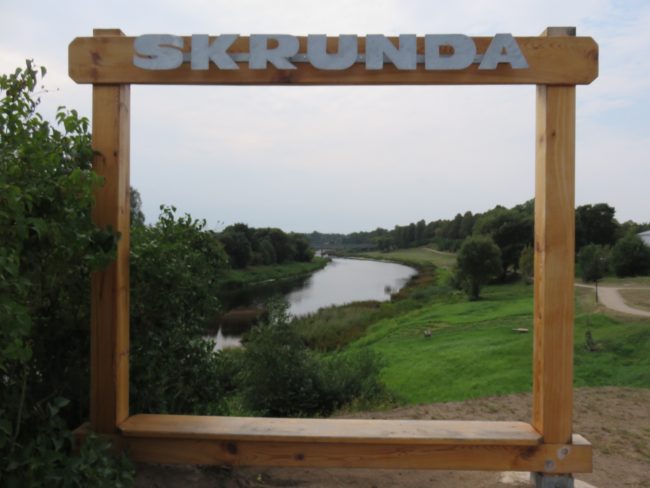
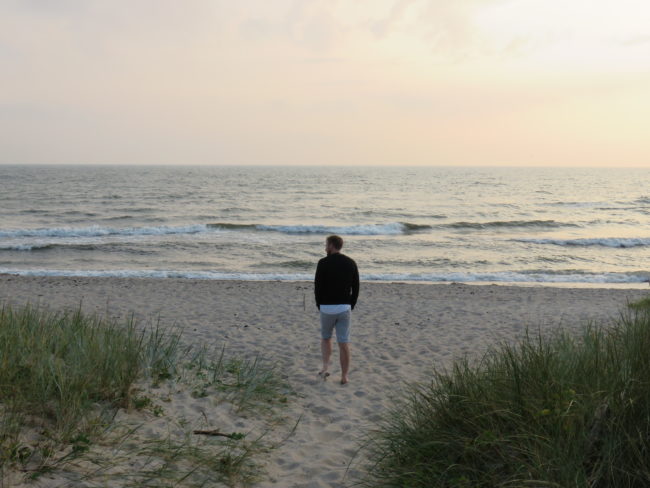
Here are the activities we enjoyed during our stay:
- Relax on the beautiful beaches.
- Visit the wild auroxen and horses.
- Enjoy lunch and cake at the cafe Radošā darbnīca “Ligate” (Buši, Rucava, Rucavas pagasts, LV-3477, Latvia) in the town of Rucava.
- Visit the historic fishing village of Ķoņi.
- Enjoy the walking trails.
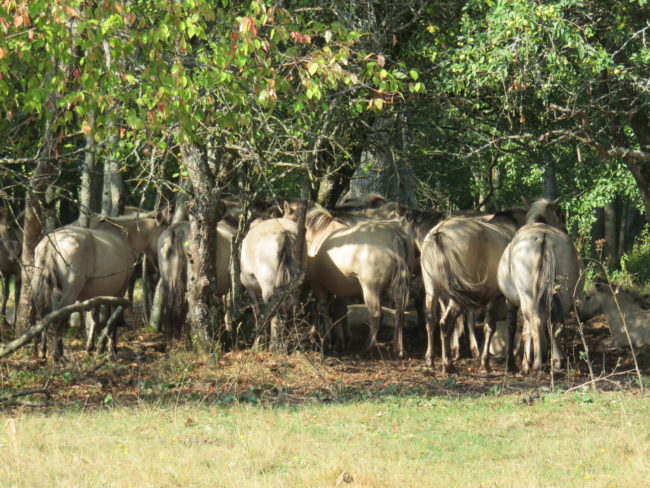
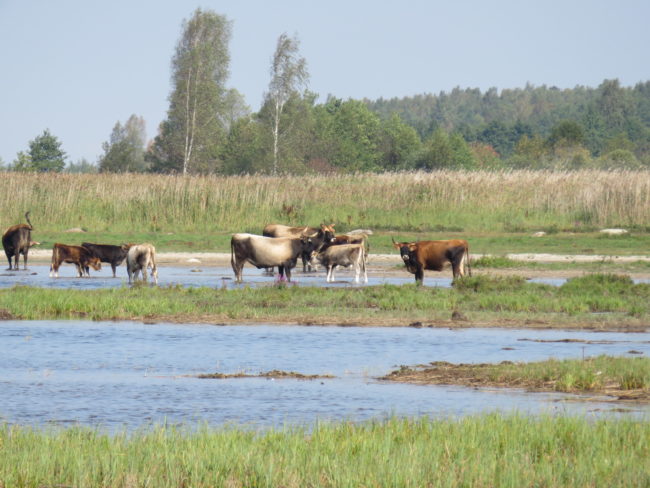
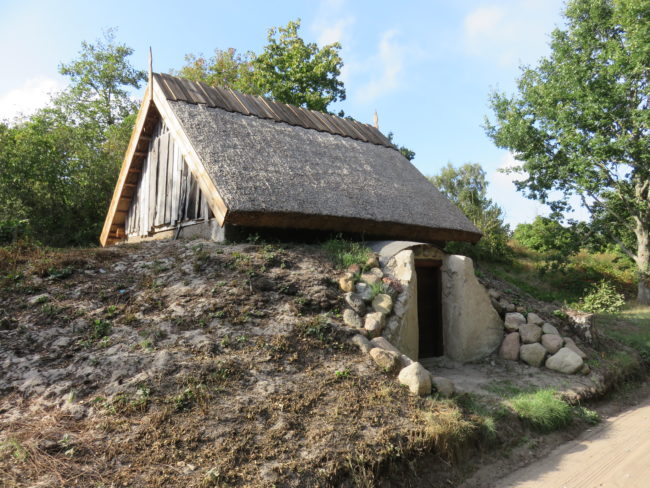
Day 7: Kuldiga
- Staying in: Kuldiga
- Read my full posts: This is just an overview. Read my full posts on visiting Sigulda.
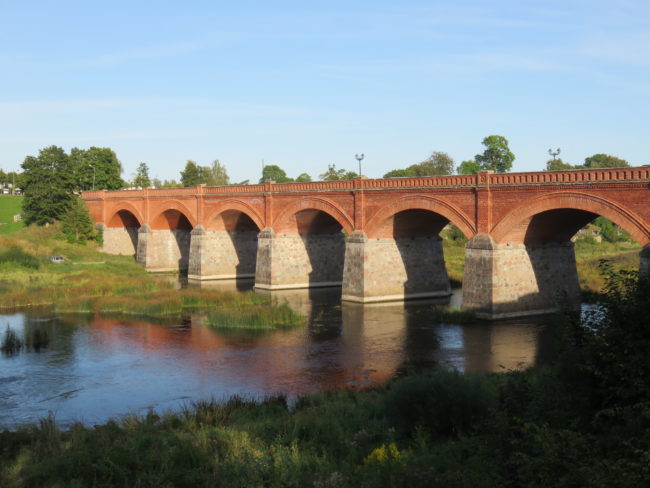
From Pape, drive to the medieval village of Kuldiga. Along the way, stop off in the historic town of Aizpute. It is the largest and oldest town in the vicinity of Liepaja, and it is very charming, with streets lined with the traditional wooden historic Latvian buildings. Read more about the town of Aizpute here.
Kuldiga was untouched by war, so it has retained its wonderful historic buildings and features. This is now a popular tourist destination, but like the rest of Latvia, it has a relaxed and laid back atmosphere with a strong community feel.
- Visit Riežupe Sand Caves, a network of man made tunnels created in the 18th century
- Walk across the Venta Rapid, the widest waterfall in Europe at 249 metres.
- Visit the park of Pils iela where the local castle once sat.
- Enjoy a refreshing swim in the Venta River.
- Step back in time by walking through the historic streets of Kuldiga.
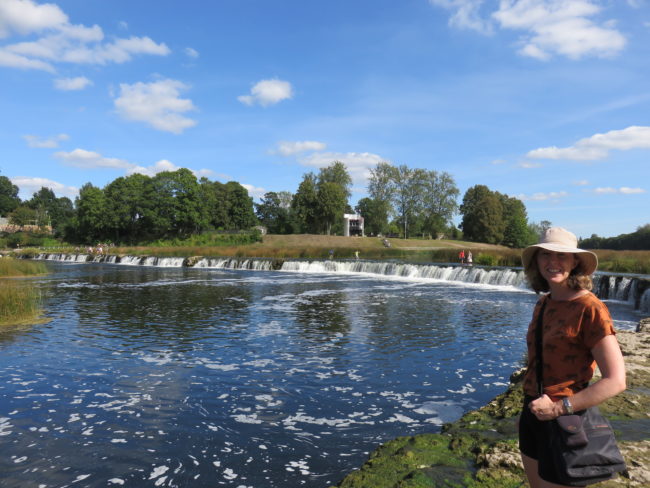
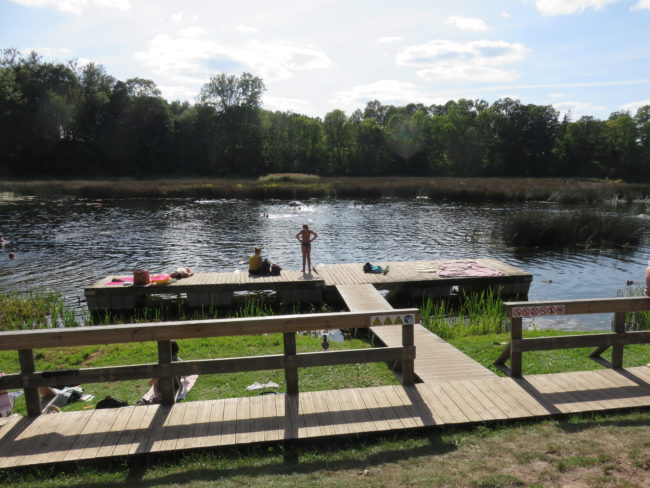
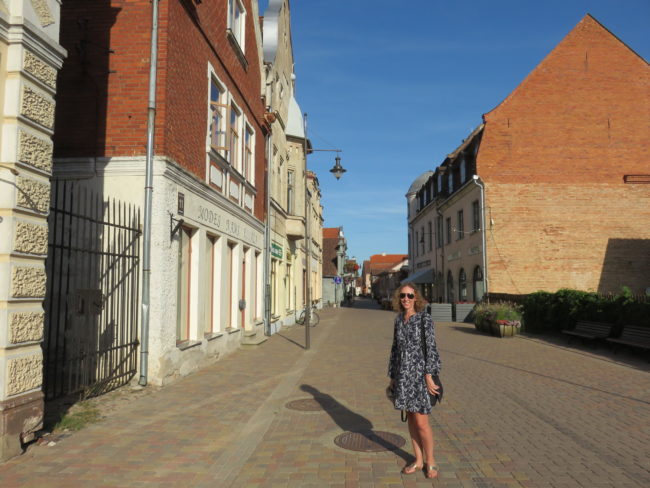
Day 8 – 10: Jūrmala
- Staying in: Jūrmala
- Read my full posts: This is just an overview. Read my full posts on visiting Jūrmala.
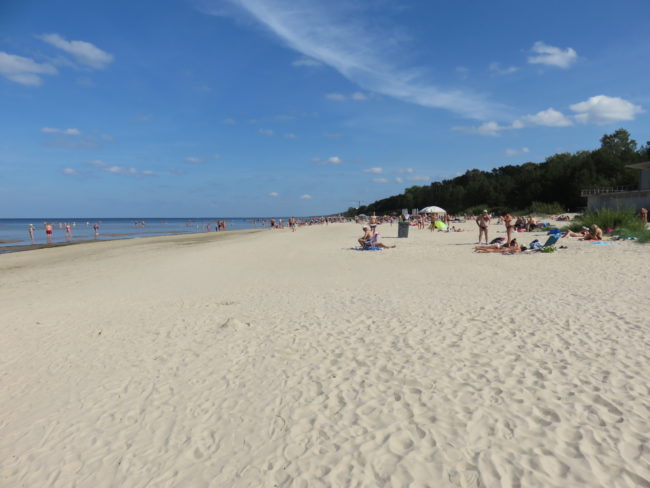
Drive from Kuldiga to the popular Latvian coastal resort of Jūrmala on the Baltic coast. Jūrmala is Latvia’s most popular coastal resort, thanks to its close proximity to Riga, only a 50 minute train ride away. If you enjoy eating fish, on your way there stop off at Ragaciems, an ancient fishing village where you can buy some freshly smoked fish. From the market continue along the coastal road to Jūrmala. There is so much to see and do in Jūrmala and the surrounding area it deserves a couple of days.
- Relax on the beautiful Jūrmala beaches. The sand is super soft and white and the water is very shallow so you have to walk out a long way before the water finally gets deep enough to swim in.
- Go shopping in Jūrmala’s pedestrian street with restaurants, shops, bars and cafes.
- Admire the beautiful houses and architecture that is unique to this city. Jūrmala’s wooden houses date from the 19th and first half of the 20th century in Art Nouveau style.
- Go walking in the Ķemeri National Park and also visit the Great Kemeri Bog and Black Elder Swamp
- Visit Latvia’s wild auroxen and horses at Dunduri Meadows
- Go walking in Ragakapa Nature Park and enjoy the nearby beaches.
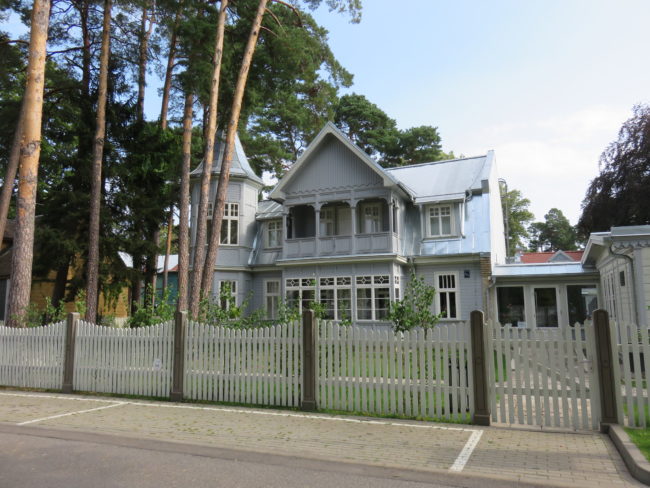
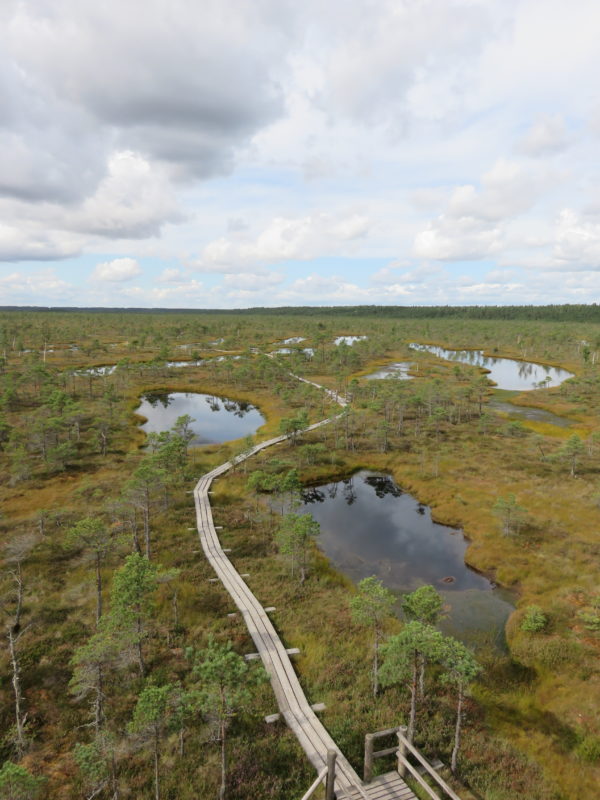
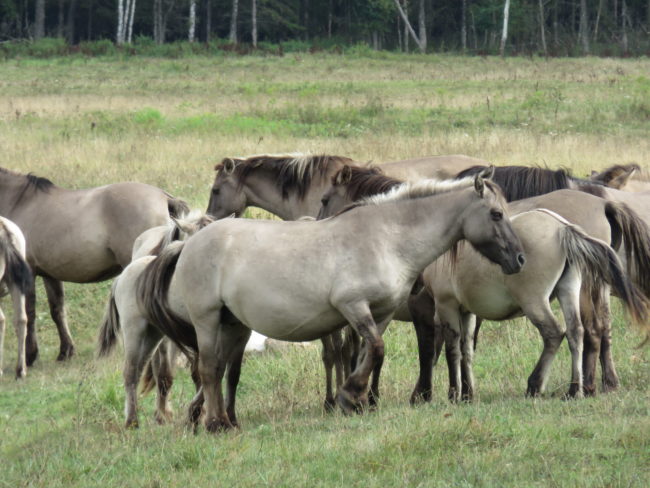
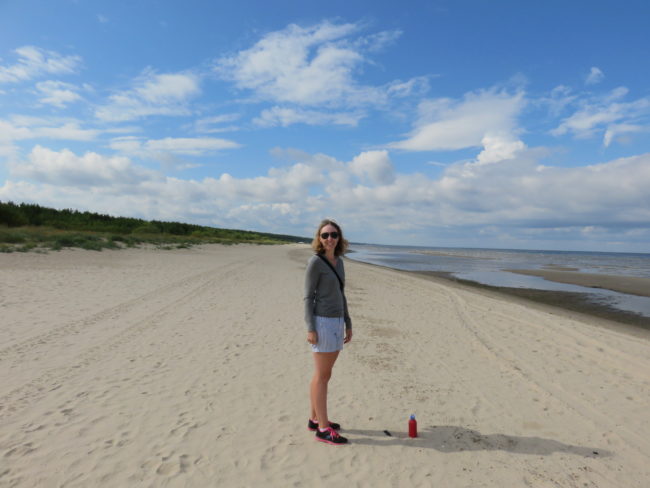
Day 11 – 12: Rīga
- Staying in: Rīga
- Read my full posts: This is just an overview. Read my full posts on visiting Rīga.
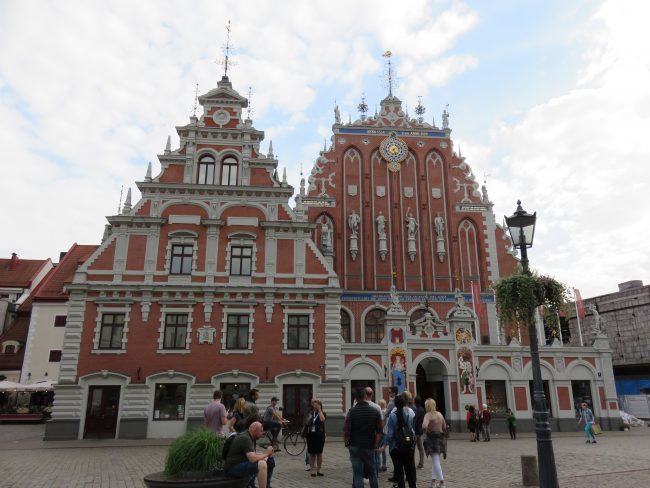
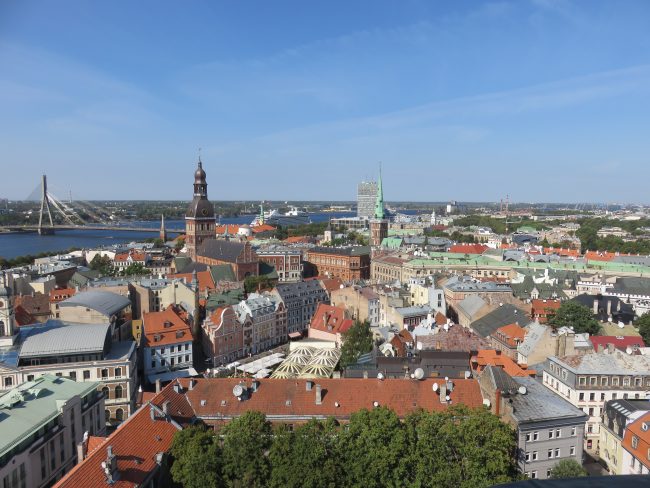
Rīga, Latvia’s capital city, is the final stop of your two week self-drive holiday around the sights of Latvia. To avoid the stress and expense of driving and parking in Rīga, consider returning your hire car to the airport and taking the cheap and regular airport bus into the inner city.
Rīga is a large sprawling city where a third of Latvia’s population lives. The city lies on the Gulf of Rīga at the mouth of the Daugava River, where it meets the Baltic Sea. Rīga features a UNESCO World Heritage historic city centre with stunning Art Nouveau/Jugendstil architecture as well as rustic 19th century wooden architecture.
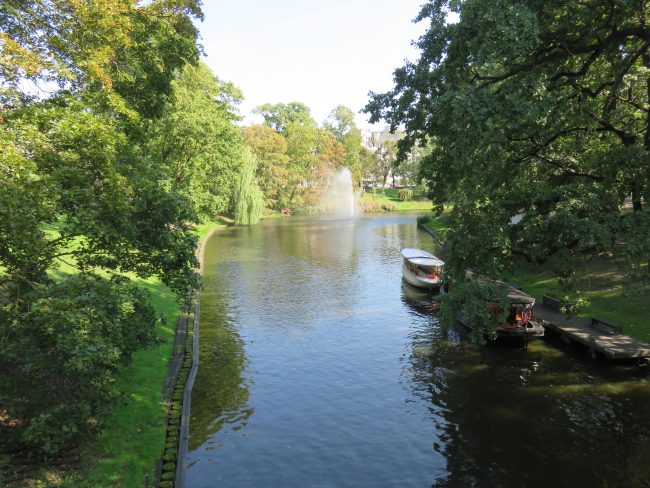
Highlights include:
- The House of Blackheads, originally built during the 14th century for the Brotherhood of Blackhead.
- Take in panoramic views of the city from St Peter’s Church spire.
- See the statue of the Town Musicians of Bremen from a folktale by the Brothers Grimm.
- Enjoy the beautiful parks Bastejkalna, Kronvalda, Esplanāde and Vērmane Garden.
- Visit the Freedom Monument, which honours the soldiers killed during the Latvian War of Independence (1918–1920).
- See the Powder Towe,r which was one of Riga’s fortification wall towers, originally called the Sand Tower. Now houses the War Museum.
- Explore the cobbled streets area around the Swedish Gate.
- See the Riga Castle which sits on the banks of the River Daugava. Now it is the official residence of the President of Latvia so it is not open to the public. It is surrounded by several beautiful churches, including Our Lady of Sorrows Church, St. Saviour’s Anglican Church and St. Mary Magdalene Roman Catholic Church.
- Walk past the Three Brothers, now the Latvian Museum of Architecture.
- Take a stroll around Dome Square and see the medieval Riga Dome Cathedral and surrounding buildings from the 19th and early 20th century.
- Enjoy a drink in Līvu Laukums and admire The Cat House, The Great Guild and The Small Guild.
- Visit the local traditional farmer and artisan market, Kalnciema kvartāls.
- Enjoy the Latvian National Museum of Art
- Admire beautiful Art Nouveau architecture on Alberta Street.
- Shop in Rīga Central Market, housed in a military hangar.
- Enjoy the architecture and views from the Latvian Academy of Sciences Observation deck.
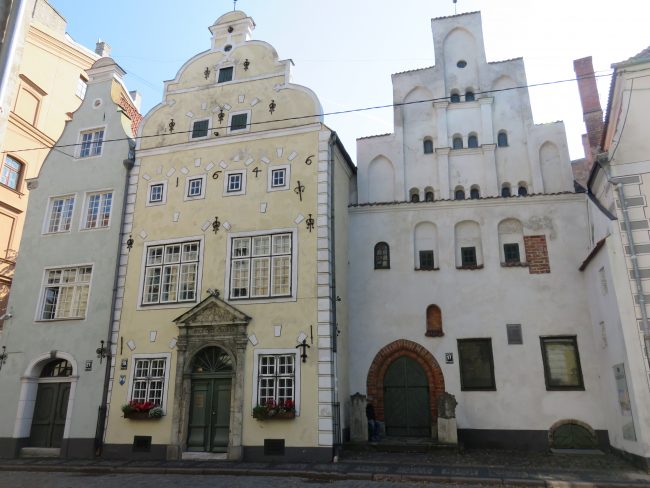
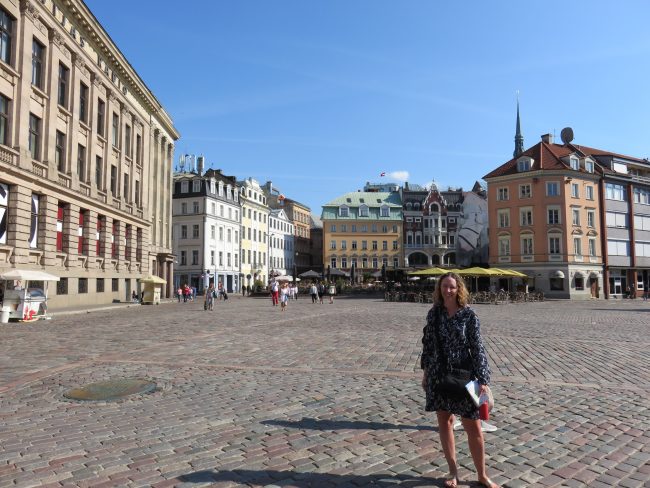
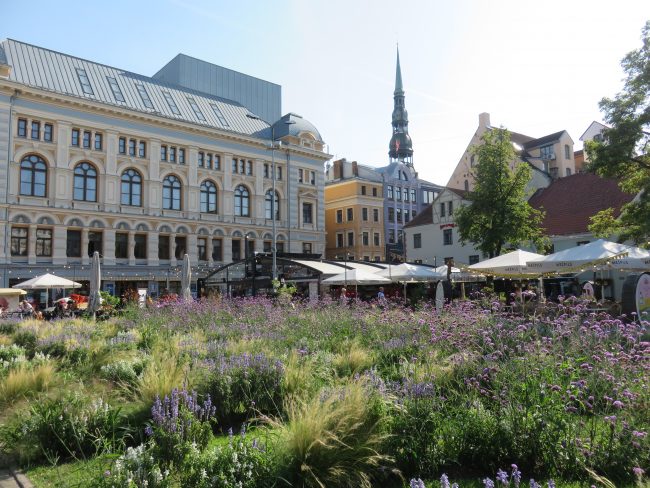
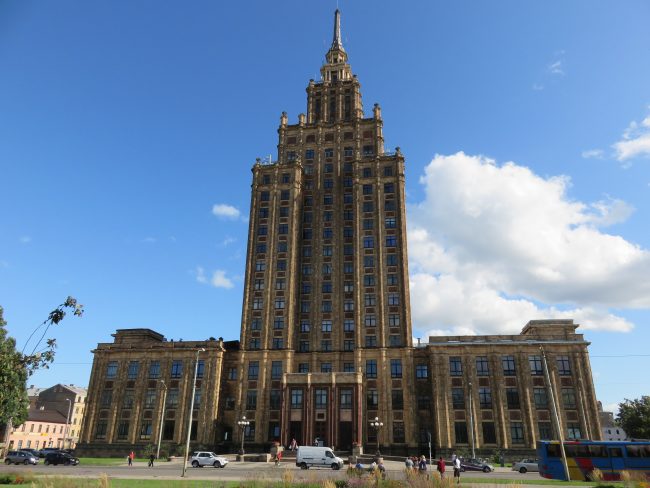
Practical Tips for Visiting Latvia
- Language: Latvian is the official language of Latvia. Latgalian, Ukrainian, Belarusian and Russian are also spoken. Most younger people we came across spoke excellent English, particularly at the tourist sites. But do try your hand at a few Latvian words:
- Hello – Sveiki (Svekee)
- Please – Lūdzu (LOO-dzoo)
- Thank you – Paldies (PUHL-dyehs)
- Yes – Jā (yahh)
- No – Nē (neh)
- Excuse me – Atvainojiet (UHT-vay-noh-yeht)
- I’m sorry – Piedodiet (pyeh-DOH-dyeht)
- Goodbye – Atā (UH-tahh)
- Where is the toilet? – Kur ir tualete? (koor eer TWAH-leh-teh?)
- Currency: Euro. Most places accept cards for payment, however, there are quite a few smaller places that only accept cash, so I recommend taking some cash with you.
- Tipping: Not required.
- Electricity: The electrical current is 230 volts AC. Wall outlets generally take the European two round prong plugs. However, you are better off purchasing a worldwide adaptor that can be used in Latvia as well as other countries. At least then you can potentially get some further use out of it on future vacations. If you’re taking several electronics with you, then I would recommend purchasing a couple of these adaptors.
- Driving in Latvia: In Latvia, they drive on the right hand side, and all vehicles must have their lights on day and night. In built-up areas, speed limits are 50 km/h and 20 km/h in residential areas. On normal roads, car speed limits are 90 km/hr and 100km/hr on dual carriageways.
- There are a lot of speed cameras in Latvia, and they are hard to spot as they are a modern, slim grey design. There will be a warning sign directly before it, but they are easily missed. They carefully monitor speeding in Latvia, as we witnessed several drivers being stopped by police, so watch your speed.
- Be aware that many of the roads in Latvia are gravel roads.
- On some of the highways that have a wide shoulder, you will see that the outside road marker is a broken white line – you are expected to move over to allow other drivers to pass you on the left – see the image below.
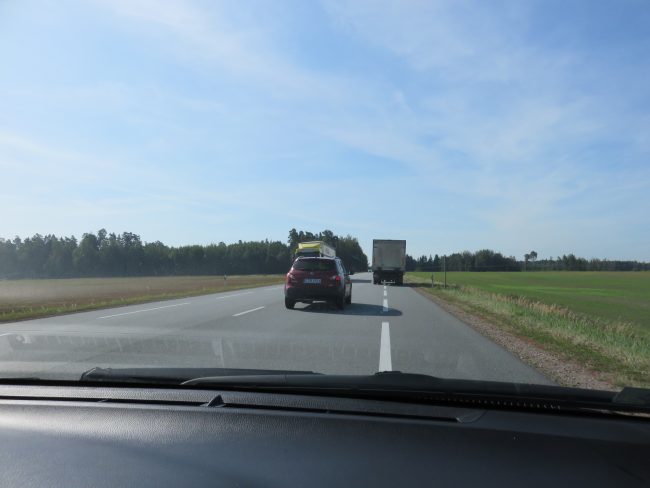
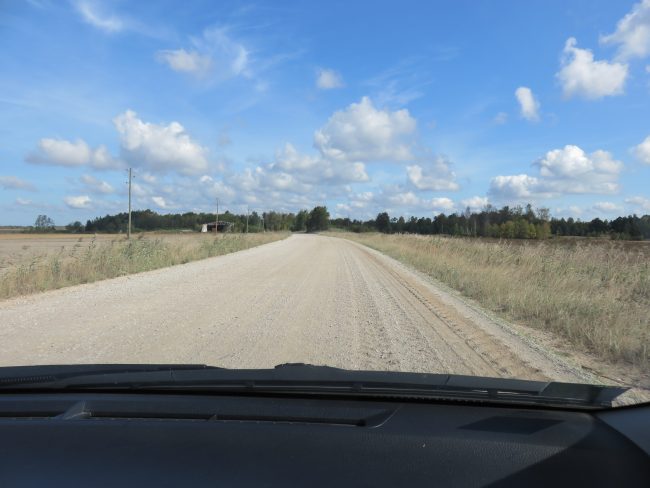
- Navigating: Use Google’s free Offline Maps which allows you to access free maps for navigating that can be used offline i.e. you don’t need WIFI, data, or roaming to be able to use them. Follow this detailed guide on how to use Googles Offline Maps.
- Using your phone as a GPS will drain your battery quickly, so use a portable battery charger which you can use to charge your phone and any other USB chargeable devices.
- If you prefer a paper map, then purchase a Latvian road map before you go. At least it’s reliable and won’t run out of battery or malfunction like the electronic options!

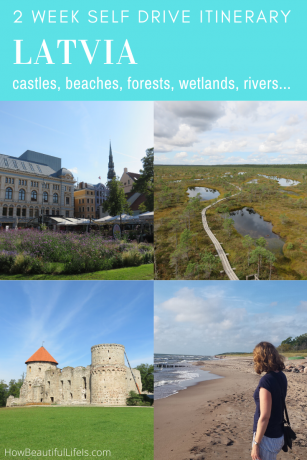
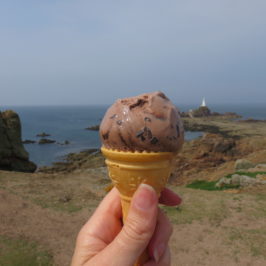
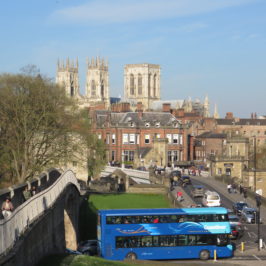
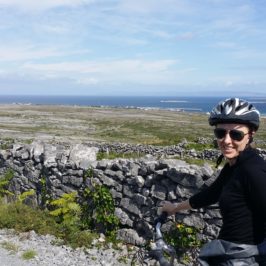
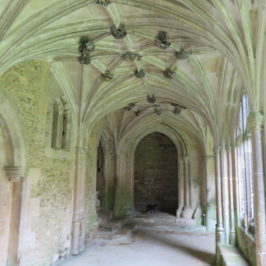
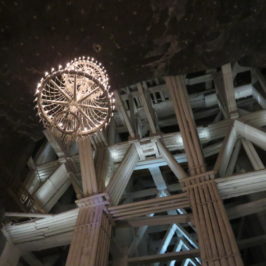
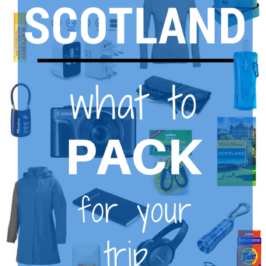
Leave a Reply